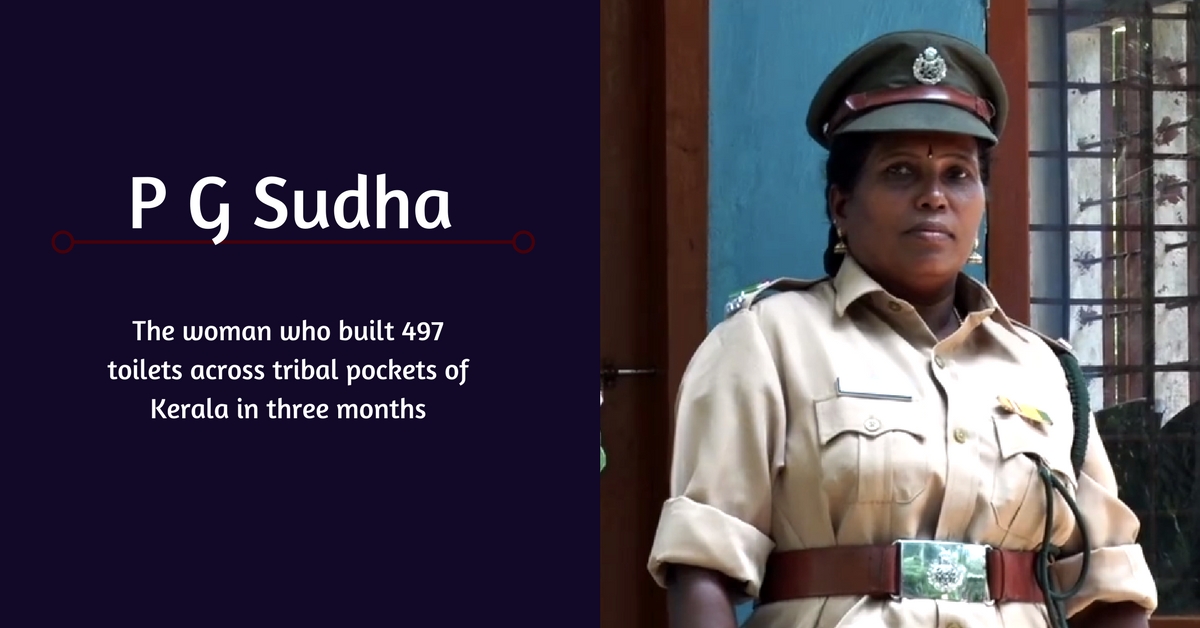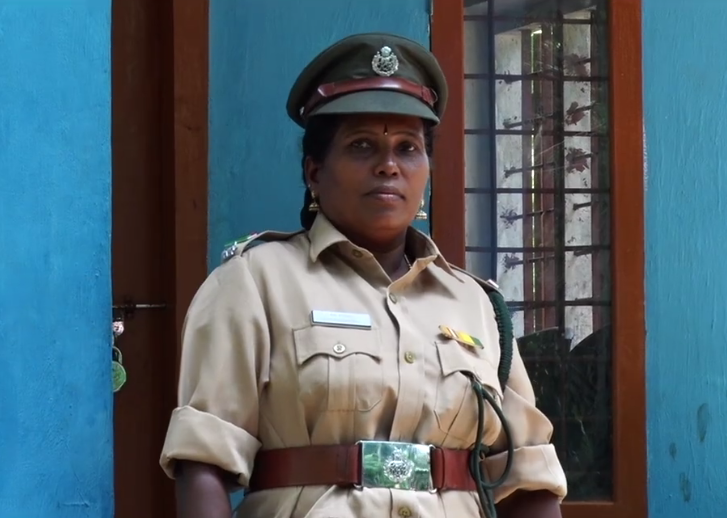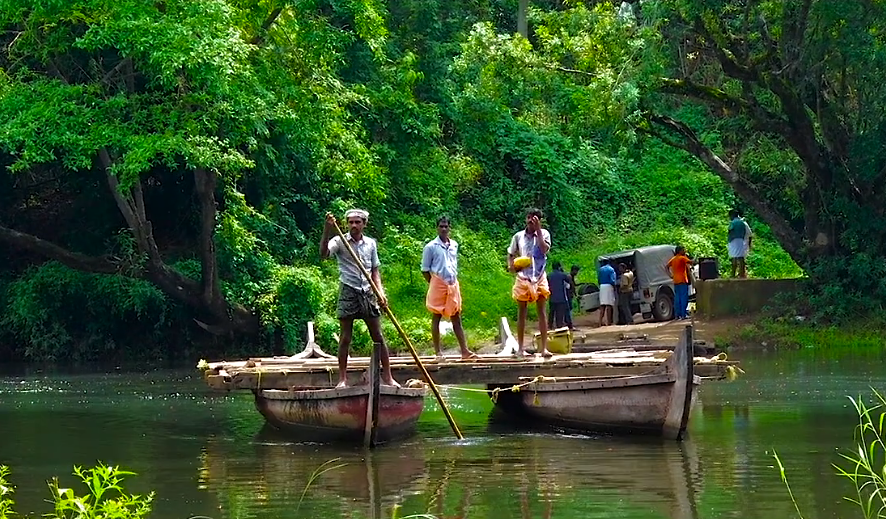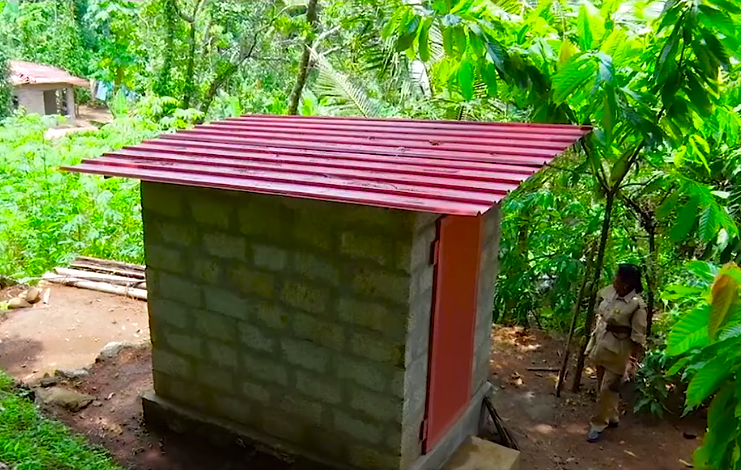Dedicated Woman Forest Officer Singlehandedly Built 497 Toilets in Tribal Colonies!
Because of her determination to make the tribal pockets of Kerala open defecation free, Sectional forest officer PG Sudha was awarded by Kerala Chief Minister Pinarayi Vijayan in 2016.

Unlike people living in urban, rurban and even rural areas of the country, sensitising isolated tribal communities about the importance and need of proper sanitary facilities can be more or less equated to an overhaul of norms and practices that have been handed down from generation to generation.
To think of it, those who have been living isolated and unacquainted with the ways of modern living would naturally find any new mannerism preposterous—for example, eating food with spoon or fork.
In that case, wouldn’t it be very complicated to convince Adivasis to stop defecating in the open and build a toilet in their settlements?
However, sectional forest officer PG Sudha did it and managed to singlehandedly supervise and facilitate the building of not one or two but 497 toilets across nine tribal colonies in Kuttampuzha Range in Kerala’s Ernakulam district and that too within a record time of three months.
Having joined the state forest department 16 years ago, Sudha herself hails from one of the tribal communities in Kuttampuzha who have more or less adapted to modern culture and lifestyle in comparison to their isolated brethren in the deep woods.

The daring woman was conferred the Best Forest Guard Award by Kerala Chief Minister in 2006, for her exemplary services to the state forest department.
In 2016, when every district in Kerala was working towards making the state Open Defecation Free (ODF), K Mohammed Y Safirull, the district collector of Ernakulam, had a brainwave.
With the belief that Sudha’s deep-rooted knowledge about her roots could make her more suitable to approach the tribals, he entrusted the sole responsibility of the task, to the 51-year-old forest officer.
“It wasn’t an easy task at all. In fact, every contractor I approached for the project had point blank refused to take the responsibility, as it was logistically hard to take materials and manpower to such remote forested regions. These are areas that had no connectivity whatsoever, and the closest settlement takes a minimum of 3 hours to reach by foot. Also, they were quoting prices that were multiple times higher than usual charges. Finally, I came up with the idea of involving local masons from the tribal settlements, which finally worked to our benefit,” says Sudha to The Better India.
That was probably the easiest part. There was still the need to involve at least some experienced workers.
You may also like: This IAS Officer’s Unique Initiative Deserves Your Help; Donate a Toilet Today!
“I had to go all the way to Ernakulam city and quite literally had to beg people to come on board. The remaining workforce had been people from the department as I realised we knew better of the region and the tribal communities,” she remembers of the herculean task.
Now that a workforce had been established, the logistical aspect of carrying all the construction materials through extremely dense forests full of wild elephants was a significant obstacle. The connectivity problem remained for Sudha and her team as well.
Rivers and streams are indispensable facets of any forested region, and they worked out a plan to use the waterways to their advantage.

“With the help of rafts, we managed to navigate all the materials to the designated locations near the tribal colonies. Since there aren’t proper roads or even a pathway in these regions, we had to move all the workers in jeeps. The monetary requirements of the project were mobilised through Panchayat funds. Because I could figure out an economical alternative for every step, the overall expenses fell quite well within the allocated budget, and we managed to accomplish what I had envisioned way ahead of time,” Sudha proudly mentions.
You may also like: 6.3 Cr Indian Girls Lack a Private Toilet. One Organisation is Trying to Change That!
Sudha and other forest officials also took a personal interest in raising awareness about the perils of open defecation alongside the necessity for healthy sanitation, to the tribal communities, who were receptive and quite involved in the process.
In fact, it has almost been two years since the toilets were set up and Sudha explains that the Adivasis have maintained it very well.
Because of her determination to make the tribal pockets of Kerala open defecation free, Sudha received yet another award from Chief Minister Pinarayi Vijayan during the ODF declaration event on November 1, 2016, followed by Nari Shakti Puraskar from the then President Pranab Mukherjee.
Sudha has three sons, of which one works with the forest department, one is a police personnel and one works as a driver.

In a time when women still face gender disparity in workplaces and professional spheres, sectional forest officer PG Sudha has steadfastly proved that there is no job which is only a man’s forte and if one is willing to go the extra mile, anything can be achieved.
(Edited by Gayatri Mishra)
Like this story? Or have something to share?
Write to us: [email protected]
Connect with us on Facebook and Twitter.
NEW: Click here to get positive news on WhatsApp!
If you found our stories insightful, informative, or even just enjoyable, we invite you to consider making a voluntary payment to support the work we do at The Better India. Your contribution helps us continue producing quality content that educates, inspires, and drives positive change.
Choose one of the payment options below for your contribution-
By paying for the stories you value, you directly contribute to sustaining our efforts focused on making a difference in the world. Together, let's ensure that impactful stories continue to be told and shared, enriching lives and communities alike.
Thank you for your support. Here are some frequently asked questions you might find helpful to know why you are contributing?













